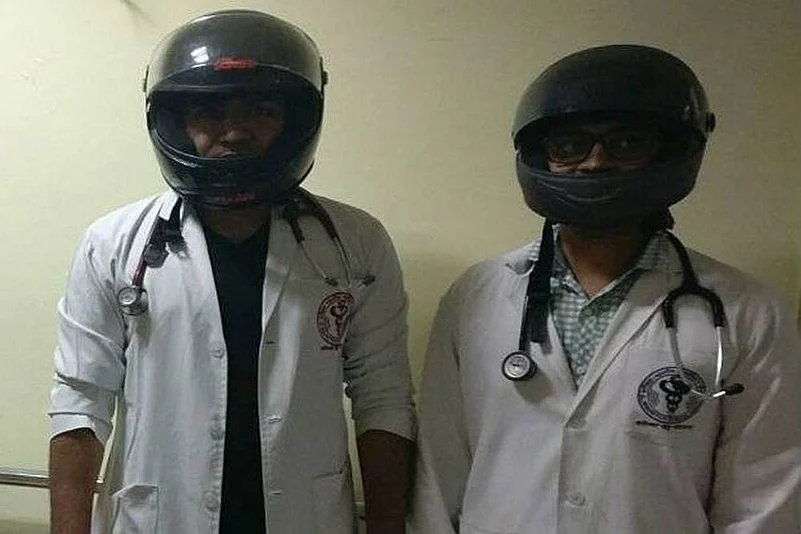The doctors at Delhi's All India Institute of Medical Sciences (AIIMS) will learn taekwondo to defend themselves from the aggressive kin of patients.
Taekwondo Class A Day Can Keep The Rowdy Kin Of Patients Away, Believe Doctors
Around 1,500 resident doctors have registered themselves for the 6-months-long course at AIIMS gymkhana club
Advertisement

Taekwondo Class A Day Can Keep The Rowdy Kin Of Patients Away, Believe Doctors
Taekwondo Class A Day Can Keep The Rowdy Kin Of Patients Away, Believe Doctors
Around 1,500 resident doctors have registered themselves for the 6-months-long course at AIIMS gymkhana club, reported Hindustan Times.
In the month of April, around 20 government-run medical facilities, including AIIMS, faced 'violent disruptions' in some way or the other. The states of Maharashtra and Gujarat even saw large protests demanding safety of the doctors. even the resident doctors at AIIMS were seeing sporting a helmet as a mark of protest.
"We had supported our counterparts in Mumbai by wearing helmets to work in March. This is because we are genuinely concerned about our safety. Keeping the same in mind, we had requested the AIIMS administration to organise self-defence classes for us," Dr Vijay Gurjar, president of resident doctors' association was quoted as saying to the paper.
The doctors, in batches of 100, will train at the gymkhana club between 7-8 pm every day from May 15, the report stated.
A 2016 study carried out in a tertiary care hospital in New Delhi reported that over 40% of resident doctors were exposed to violence in the workplace in the past 12 months.
According to an Indian Medical Association (IMA) report atleast 75% of doctors face either physical or verbal violence in their entire career.
"Junior doctors face the most violence. They are posted as first responders in emergency rooms but most of them are inexperienced in handling patient queries. Relatives of patients also do not treat them as doctors with experience, resulting in conflict situations," Dr K K Aggarwal, national president of IMA, was quoted as saying in the Lancet report.


















